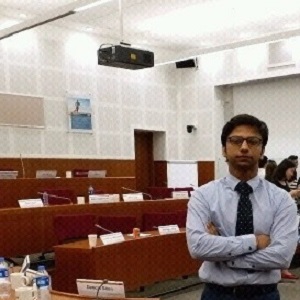The Ethical Challenges Faced by Engineers In The Age Of Emerging Technologies
 In the last decade or so, almost every industry started employing advanced new-age technologies. From artificial intelligence reshaping industries to biotechnology revolutionizing healthcare, the pace of innovation has accelerated exponentially. In India alone, the rate of AI adoption reached nearly 48% in FY2040 with projections suggesting further growth by an additional 5-7% in the coming year. This rapid transformation is exciting, bringing efficiency and innovation to every corner of the industry. However, this rapid evolution has also brought with it ethical dilemmas.
In the last decade or so, almost every industry started employing advanced new-age technologies. From artificial intelligence reshaping industries to biotechnology revolutionizing healthcare, the pace of innovation has accelerated exponentially. In India alone, the rate of AI adoption reached nearly 48% in FY2040 with projections suggesting further growth by an additional 5-7% in the coming year. This rapid transformation is exciting, bringing efficiency and innovation to every corner of the industry. However, this rapid evolution has also brought with it ethical dilemmas.
Let’s look at the challenges and how engineers can navigate them:
Individual privacy and data protection
Data has become essential for understanding consumer behavior, developing new solutions, or creating policy. Nowadays, various industries employ new-age technologies like AI, IoT, and other systems to generate, store, and analyze massive amounts of information. While this data can be used to create personalized experiences and drive innovation, it also raises concerns about surveillance, discrimination, and the potential misuse of sensitive information. Here, one of the ethical challenges faced by engineers is the delicate balance between technological progress and individual privacy. It has become crucial to understand who has access to personal data and how it is used. Engineers must develop robust data protection measures, ensure transparency in data collection and usage, and empower individuals to have control over their personal information.
In an increasingly interconnected world, the security risks associated with emerging technologies cannot be ignored. India was ranked among the top five countries facing cyberattacks. Cyberattacks are a constant threat, particularly for industries reliant on information and operational technology. Engineers responsible for securing systems—such as those working with Industrial IoT ecosystems—must ensure that the data being transmitted and stored is protected.
Algorithmic bias and fairness
Tech-enabled systems are built on algorithms, and these algorithms are often a reflection of the data they are trained on. Unfortunately, this can lead to biased outcomes. If the data contains societal prejudices, these biases can be carried over into the decisions made by AI, leading to unfair outcomes, particularly for marginalized communities.
For engineers, this is a significant challenge. One of the key focus areas should be creating AI systems that are not only accurate but also fair. Engineers must be diligent in identifying and mitigating biases in their algorithms to avoid perpetuating discrimination in areas like hiring, lending, law enforcement, and healthcare. Even if the systems are tech-enabled, they should be accountable and transparent.
Job displacement due to automation
While emerging technologies enhance productivity and enable new business models, they also lead to the automation of many jobs. The rise of AI-driven processes is displacing certain manual or repetitive roles, leaving workers in industries like manufacturing, retail, and logistics vulnerable.
From an ethical perspective, the question engineers must grapple with is: How do we ensure a just transition for those affected by automation? Developing strategies to reskill and upskill workers is essential, and there needs to be a conscious effort to create new job opportunities in emerging fields. By designing systems that complement human capabilities rather than replacing them entirely, engineers can help create a more equitable future.
Environmental impact of emerging technologies
Emerging technologies do not operate in a vacuum. They have significant environmental implications, from the energy-intensive processes powering data centers to the waste generated by the disposal of outdated electronic devices. As technology advances, so does the carbon footprint associated with it.
Engineers have an ethical responsibility to address the environmental consequences of the technologies they create. Sustainable practices must be prioritized—whether by promoting energy efficiency, reducing e-waste, or considering the entire lifecycle of the products they design. This is not just an ethical obligation but a necessity for a sustainable future.
Road Ahead: Towards an ethical tech-enabled landscape
As the world becomes more reliant on AI and other advanced technologies, the ethical challenges facing engineers will continue to evolve. Some of these challenges include data privacy, algorithmic bias, job displacement, environmental sustainability, and cybersecurity. Addressing these requires a proactive approach in which engineers, policymakers, and industry leaders collaborate to create robust frameworks that prioritize human values, fairness, and sustainability.
Engineers are responsible for implementing industry standards that protect sensitive data and ensure compliance with regulations like the General Data Protection Regulation (GDPR). By engaging in open, inclusive discussions and adopting ethical best practices, engineers can help ensure that emerging technologies not only drive innovation but also contribute to a more just, equitable, and secure society.

